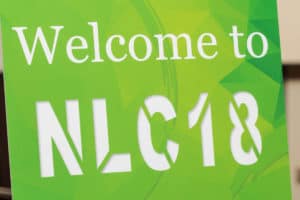Do you want an investment that holds its value in these turbulent times? Set your sights on land.
During 2008, as the Dow fell by 31.4 percent and home prices dropped 12.4 percent, according to NAR research, the prices of farm and pasture land generally maintained its value. “Land prices usually stabilize during a down turn and hold their value during financial storms,” says Lou Jewell, ALC, Dan River Real Estate Inc., Pilot Mountain, N.C.
Combine that stability with the low management and maintenance requirements and rising scarcity, and you have an investment ideal for these challenging times.
“Land is the ultimate source of wealth. As the population expands, there will be more demand for an increasingly scarce resource, so values will trend up. It’s a basic economic principle,” says Dr. John Baen of the University of North Texas at Denton. According to the most recent figures available from the U.S Department of Agriculture, farm real estate values rose 8.8 percent between 2007 and 2008 (the most recent figures available). Pasture land saw an increase of 6 percent during the same period.
Although land values have risen recently, there’s still plenty of investment potential in many rural markets.
“Land remains an investment that offers a positive return on value with much less risk than many types of investment, says George Clift, ALC, president of the five-office Clift Land Brokers in Amarillo, Texas. “Land is great place for investors to put their money, and, unlike stocks, land is always there. You can feel it, touch it, and walk on it.”
Clift, a specialist in agricultural production land, also believes that land will benefit from the dollar devaluation and inflation that could result from a rising deficit. “Cash will be worth less if inflation comes, but land holds its value,” says Clift.
Smart investors agree. Clift says he’s recently closed major agricultural land deals with a pension fund and a hedge fund, as well as with several private investors.
“There’s also a lot of ‘hidden’ wealth in land that current market prices may not capture,” says Baen, himself a land investor. Besides more common sources such as crops, pastureland, and timber, land can generate income from oil, mineral, and water rights; for licenses to hunt and fish; and from rentals wind and solar farms.
But if experts agree that land ownership today offers a stable, long-term source of wealth, they also recognize that not just any land purchase will produce a profit. “Investors need to understand the primary profit sectors of the land they are purchasing, whether it’s for timber, crops, or grazing. That’s why obtaining advice from an experienced land professional, like the members of the REALTORS? Land Institute is critical,” says Clift.
“Land brokerage requires specialized knowledge, the kind of comprehensive education and professional synergies that the REALTORS Land Institute can provide,” says Keith Morris, ALC, 2009 National President of RLI and owner of Four M Land Company in Somerville, Tenn. Members of RLI may further enhance their knowledge by earning the Accredited Land Consultant (ALC) designation. This prestigious designation is conferred to only those land specialists who complete a rigorous education program and who achieve a volume of successful land transactions.
By Mariwyn Evans of REALTOR Magazine
This content may not be used or reproduced in any manner whatsoever, in part or in whole, without written permission of LANDTHINK. Use of this content without permission is a violation of federal copyright law. The articles, posts, comments, opinions and information provided by LANDTHINK are for informational and research purposes only and DOES NOT substitute or coincide with the advice of an attorney, accountant, real estate broker or any other licensed real estate professional. LANDTHINK strongly advises visitors and readers to seek their own professional guidance and advice related to buying, investing in or selling real estate.









That was touching. It is a fact, that demand for land will keep increasing as the population grows and that buying land is an investment in the future. But, the points are well said and explained here. And yes, land investing or land banking needs a specialized knowledge. Its always good to go through an agent, since they know what they are doing.